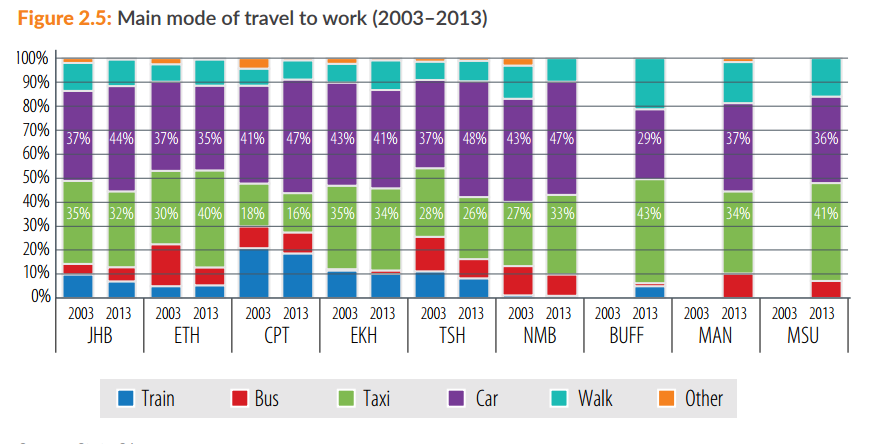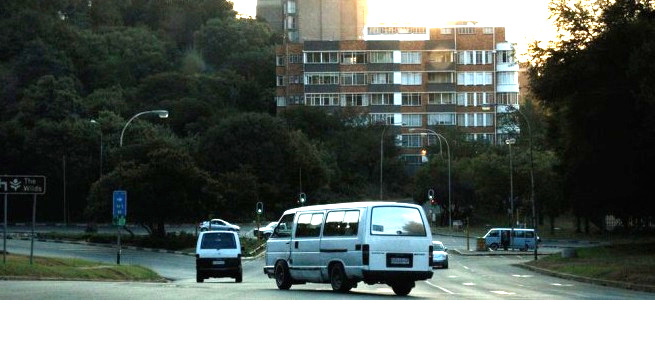There’s a reason why it seems like you spend more time in traffic today than you did say, five years ago: the number of people using private cars as their daily mode of transport has increased quite a bit.
According to the fourth State of South African Cities Report (SoCR) private car use increased in six of the country’s cities, while the use of public transport, particularly taxis, decreased in four.
In 2013, Capetonians and Port Elizabeth citizens comprised the biggest number of commuters using private cars, while those in Buffalo City (East London, King William’s Town and Bisho) used taxis the most.
(Note Buffalo City, Mangaung [Bloemfontein] and Msunduzi [Pietermaritzburg] were only included in the report from 2013).

According to SoCR, taxis are common among poorer urban residents because they represent the most responsive option in dispersed spatial landscapes.
“To date, municipalities have had little influence over the minibus taxi industry (which receives its operating licences directly from the provincial government) or rail services (which is managed by national government). There is some indication that regional bus regulating and contracting will reside increasingly at the city level with the City of Cape Town already the first to explore taking on this function,” it states.
Investing in public transport crucial for city growth
SoCR noted that although many political, institutional and financial issues plague the transport sector, without embarking on investment in Bus Rapid Transit, such as Joburg’s Rea Vaya, the likelihood of cities becoming the primary planning authorities in South Africa would have been slim.
“Despite its challenges, implementing BRT has given cities access to important transport experience, albeit only for a single mode. The cities’ performance to date needs to be contextualised and seen in light of transitioning towards municipally operated public transport networks. A single mode cannot be expected to be the saviour of South African transport problems or to outperform other modes,” the report said.
In order to improve on the already-implemented systems, SoCR said tough decisions will need to be taken in the face of continuously escalating costs, fragmentation, increased travelling times and ongoing poor access and mobility as the economy cannot sustain the current approach to transport investment.
“The current investment logic needs to be re-evaluated and the system reformed towards a city-based public transport focus. To develop integrated and effective transport networks will require both increased capacity and political will,” it said.
[Source – SoCR, image –

